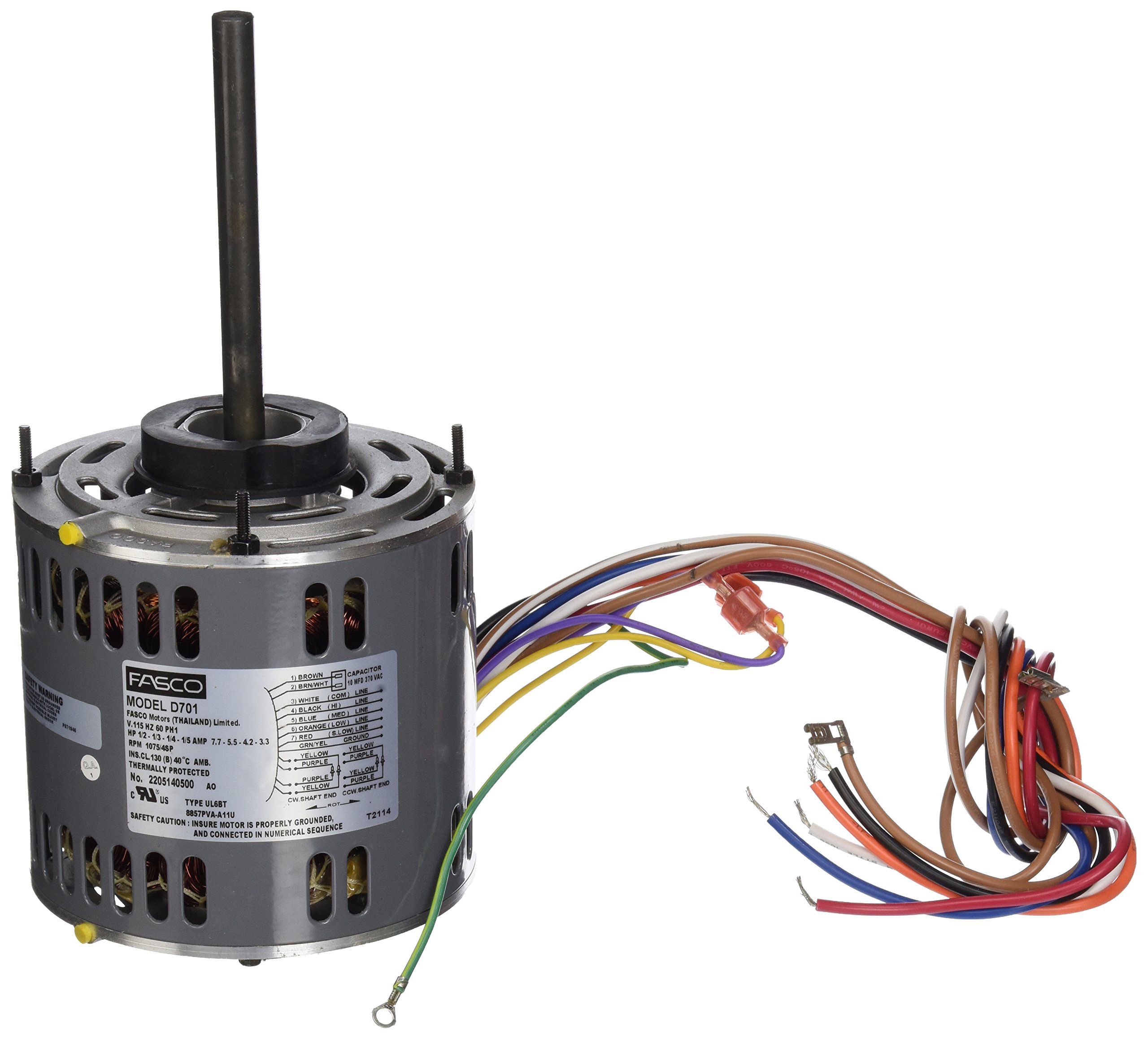When comparing a 1/2 hp and a 1/3 hp blower motor, the 1/2 hp motor generally provides more power and improved air movement than the 1/3 hp motor. Blower motors are an essential component of HVAC systems, playing a vital role in the distribution of heated or cooled air throughout the homes or buildings.
Choosing the appropriate blower motor size is crucial to ensure efficient and consistent airflow. Upgrading to a 1/2 hp blower motor can enhance system performance and longevity, potentially improving overall indoor comfort. While the 1/3 hp motor can adequately serve in certain applications, the 1/2 hp motor is more robust and capable of delivering increased air movement, making it a preferred choice for larger or more demanding HVAC systems.
Understanding The Power Difference
When it comes to choosing a blower motor for HVAC systems, understanding the power difference is crucial. In this competitive industry, every small variation in power can make a big difference in performance and energy consumption. One of the key considerations when examining blower motors is the power output. This article explores the differences between 1/2 HP versus 1/3 HP blower motors, focusing on understanding the power difference.
Output Considerations
Blower motors are crucial components of HVAC systems, responsible for circulating the air throughout the space. The power output of the blower motor directly impacts its performance. A 1/2 HP blower motor typically delivers greater air movement compared to a 1/3 HP motor. This increased power output can result in more efficient heating and cooling, making it an essential factor to consider when selecting a blower motor for your HVAC system.
Energy Efficiency Analysis
While a 1/2 HP motor may provide higher air movement, it’s essential to consider energy efficiency. A higher power output doesn’t always equate to better efficiency. The 1/3 HP motor, despite its lower output, may consume less energy, resulting in lower operating costs. It’s important to conduct a thorough energy efficiency analysis to determine the long-term cost implications of choosing between these two motor options.
Practical Applications
HVAC SystemsHvac Systems
When it comes to blower motors, the choice between a 1/2 HP and a 1/3 HP motor can have significant implications for their practical application in HVAC systems. Understanding the differences and similarities between these motors is essential for making informed decisions about which one to use for specific HVAC setups.
Residential vs Commercial UseResidential Vs Commercial Use
- 1/2 HP Blower Motor: Ideal for larger residential HVAC systems or multi-story homes where a greater air volume is required to effectively distribute heating or cooling.
- 1/3 HP Blower Motor: Suitable for smaller residential units or single-story homes where a lower air volume is sufficient to maintain comfortable indoor conditions.
- 1/2 HP Blower Motor: Commonly used in large commercial buildings, warehouses, or industrial facilities where substantial air circulation and distribution are critical for maintaining a comfortable and productive environment.
- 1/3 HP Blower Motor: Well-suited for smaller commercial spaces such as retail stores, offices, or small workshops that require moderate air circulation and ventilation.
Maintenance And Longevity
Impact On System Longevity
Choosing the right blower motor for your HVAC system can significantly impact its longevity. A 1/2 Hp blower motor is typically more durable and can withstand higher workloads compared to a 1/3 Hp motor. The higher horsepower provides the ability to handle enhanced air circulation demands, resulting in reduced strain on the system and potentially extending its life span. Regularly replacing worn-out or inefficient blower motors with a higher horsepower option can contribute to the overall longevity of your HVAC unit.
Maintenance Considerations
When opting for a 1/2 Hp blower motor, understanding the maintenance requirements is crucial. The increased power of a 1/2 Hp motor necessitates more frequent maintenance checks to ensure optimal performance. Regular cleaning and lubrication are essential to keep the motor running efficiently. Additionally, upgrading to a 1/2 Hp motor may require adjustments to the system’s airflow and balance, which should be evaluated during routine maintenance to prevent any potential issues.

Credit: www.amazon.com
Frequently Asked Questions Of 1/2 Hp Vs 1/3 Hp Blower Motor
Can You Replace A 1 3 Hp Motor With A 1 2 Hp?
Yes, you can replace a 1/3 HP motor with a 1/2 HP motor in most cases without sacrificing performance.
Can I Put A Bigger Blower Motor In My Ac Unit?
Yes, you can put a bigger blower motor in your AC unit to improve performance and energy efficiency. Upgrading the blower motor can enhance cooling and extend the longevity of your AC system. It’s important to consult with a professional to ensure compatibility and optimal results.
What Is The Most Efficient Blower Motor?
The most efficient blower motor is the ECM (electronically commutated motor), which adjusts speeds based on temperature settings. ECM motors are much more efficient than PSC motors, operating only at the necessary level for comfort. Additionally, ECM motors can be upgraded without sacrificing performance.
What Is The Difference Between 2hp And 3hp Motor?
The difference between a 2HP and 3HP motor is the power output, with 3HP offering greater strength and performance. A 3HP motor can generate more force and movement than a 2HP motor, making it suitable for heavier applications.
Conclusion
When deciding between a 1/2 HP and a 1/3 HP blower motor, it’s essential to consider the specific requirements of your HVAC system. While a 1/2 HP motor offers more power, the 1/3 HP motor provides efficient operation. Understanding these differences will help you make an informed decision for your HVAC needs.

